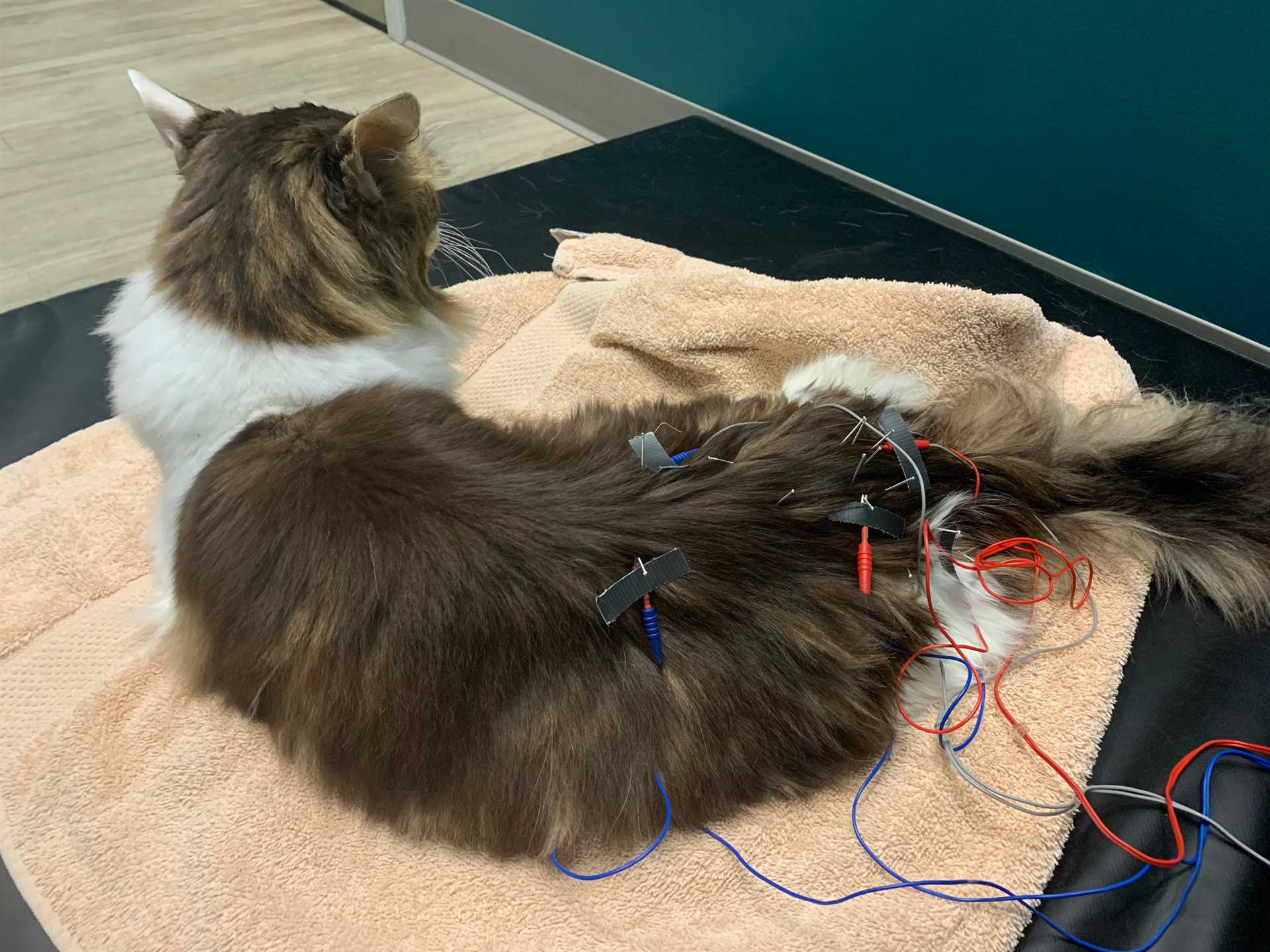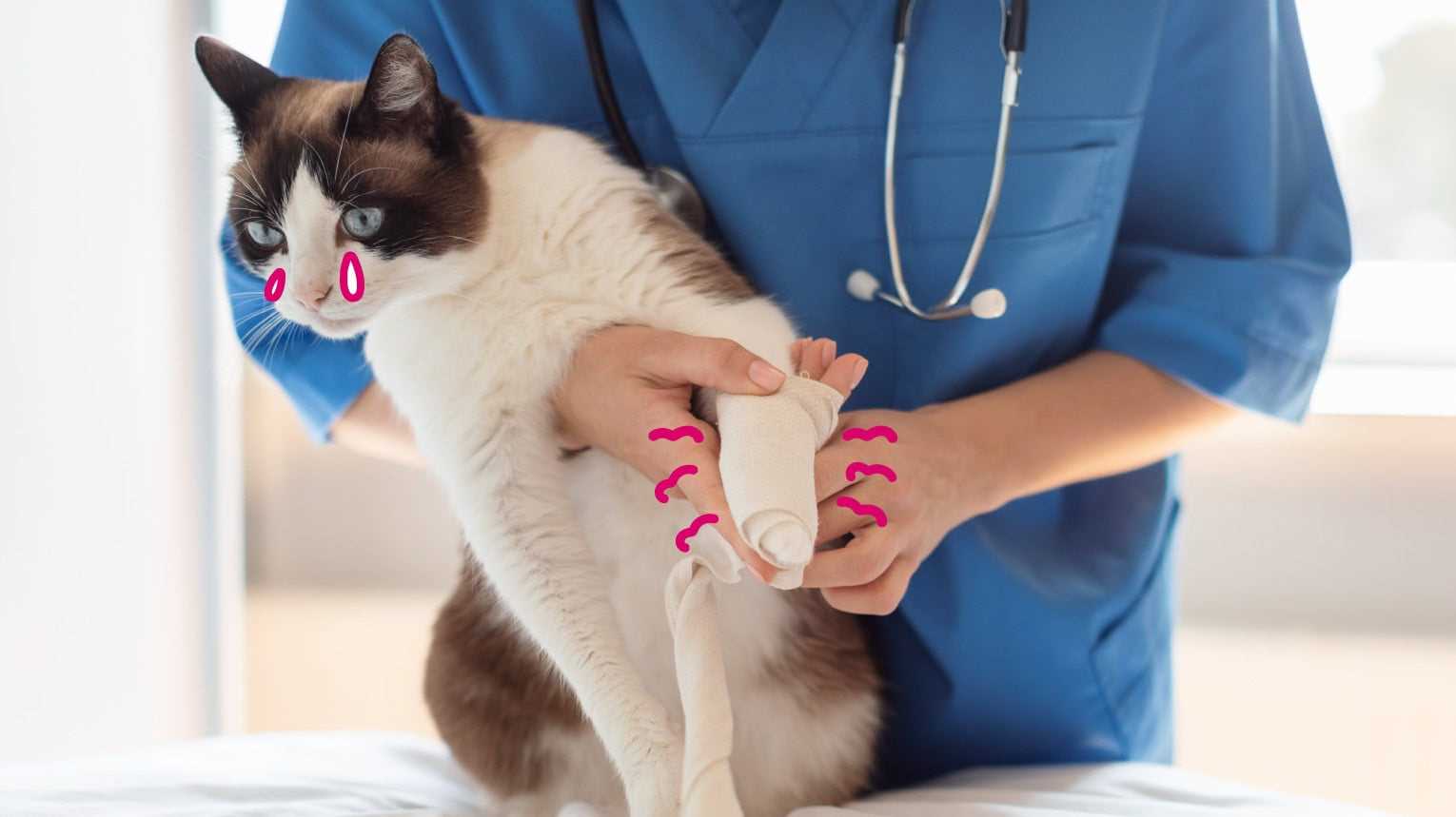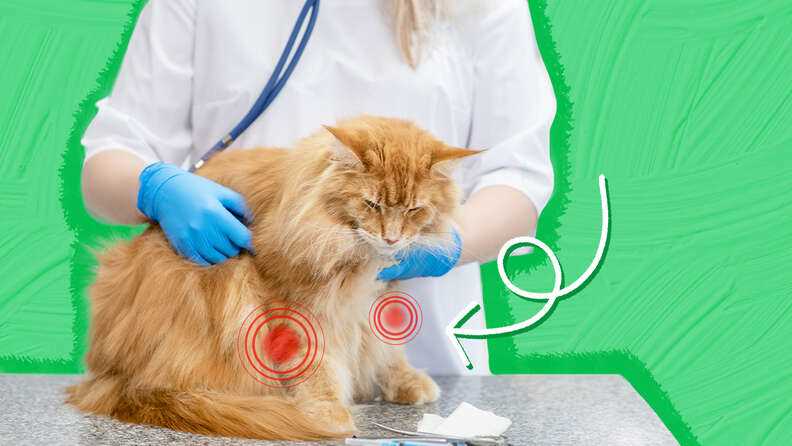



Glucosamine supplements have become a go-to option for alleviating discomfort caused by joint issues. These natural compounds support cartilage health and can significantly improve mobility. It’s essential to choose high-quality products tailored for felines, ensuring they contain the right dosage and formulation. Consult with your veterinarian before starting any regimen.
Incorporating a diet rich in omega-3 fatty acids is another strategy that can help ease inflammation. Fish oil or specially formulated cat foods provide these beneficial fats, which may reduce stiffness and enhance joint function. Regular monitoring of your intake is vital to achieving optimal results.
Physical therapy techniques, such as gentle stretching exercises, are also beneficial. Engaging in low-impact activities like swimming or walking on soft surfaces can promote flexibility without putting excessive strain on joints. Establishing a routine with your human can make this more accessible and enjoyable.
Don’t overlook the importance of comfortable resting places. Providing soft beds or heated mats can ease pressure on sore joints, enabling restful sleep. Creating a cozy environment is crucial for overall well-being, especially when dealing with discomfort.
Natural Remedies and Support for Joint Health
Turmeric is a fantastic addition to meals. This spice has anti-inflammatory properties that can help reduce joint pain. Mixing a small amount with my food makes it tastier and beneficial. Always check with a vet before introducing new items.
Omega-3 fatty acids are another great option. These can be found in fish oil supplements, which promote joint lubrication and reduce inflammation. Just a few drops added to my meals can make a big difference.
Weight Management
Maintaining an ideal weight is crucial. Excess weight adds stress to joints, worsening discomfort. A balanced diet tailored to my needs can aid in weight control. Exploring options like high-fiber foods can be useful; check out the best fiber for cats for recommendations.
Physical Activity
Gentle exercise is essential. Short play sessions help keep joints mobile without causing strain. Interactive toys or gentle play with a human companion can make it enjoyable. Regular movement promotes flexibility and overall health.
Understanding Arthritis in Cats

As an 8-year-old Scottish Fold, I’ve experienced the discomfort associated with joint issues firsthand. This condition often manifests as stiffness, especially after resting, and can significantly impact mobility. Knowing the signs is crucial.
- Watch for changes in behavior; reluctance to jump or climb can indicate pain.
- Observe grooming habits; a decrease may mean reaching certain areas is painful.
- Monitor weight; excessive pounds can worsen joint stress.
Diagnosis typically involves a thorough veterinary examination, including X-rays to assess joint health. If diagnosed, several management strategies can help alleviate symptoms.
- Weight management plays a key role; keeping a healthy weight reduces strain.
- Regular, gentle exercise helps maintain mobility without overexertion.
- Comfortable bedding can provide support, reducing pressure on joints.
Nutrition is also important. Look for diets rich in Omega-3 fatty acids, which may help with inflammation. Always consult with a veterinarian before making any changes to diet or lifestyle. Regular check-ups ensure that any adjustments in treatment can be made as needed.
Top Supplements for Feline Arthritis Relief
For those seeking relief from joint discomfort, here are my favorite supplements that help ease symptoms and improve mobility.
- Glucosamine and Chondroitin: These natural compounds support cartilage health and joint function, reducing inflammation and pain.
- Omega-3 Fatty Acids: Found in fish oil, these acids possess anti-inflammatory properties, promoting better joint health and overall wellness.
- Green Lipped Mussel: Rich in omega-3s and glycosaminoglycans, this supplement can help reduce stiffness and improve joint movement.
- Turmeric: This spice contains curcumin, known for its anti-inflammatory effects, which can provide added comfort to sore joints.
- CBD Oil: Cannabidiol may help alleviate pain and inflammation, offering a natural alternative for relief.
Always consult with a veterinarian before trying any new supplement to ensure safety and proper dosage. For practical storage of these supplements during travel, check out the best 3 day assault backpack which keeps everything organized and accessible.
Dietary Changes to Alleviate Joint Pain

Incorporating omega-3 fatty acids into daily meals can significantly reduce inflammation and pain associated with joint issues. Fish oil or flaxseed oil are excellent sources, enhancing mobility and comfort.
Switching to a high-quality, protein-rich diet featuring lean meats such as chicken, turkey, or fish promotes muscle strength, which supports joints effectively. Avoiding fillers like corn and wheat helps maintain an ideal weight, reducing stress on sore joints.
Introducing glucosamine and chondroitin supplements can be beneficial. These compounds support cartilage health and improve joint function. Look for specialized feline formulations for optimal absorption.
Fresh fruits and vegetables like blueberries and sweet potatoes provide antioxidants, which combat oxidative stress and inflammation. These natural additions can enhance overall health while being tasty treats.
Hydration is key. Encouraging water intake through wet food or pet-safe broths helps maintain joint lubrication and overall health. A well-hydrated body is less prone to stiffness.
Monitoring portion sizes is essential. Maintaining a healthy weight is crucial to preventing added strain on joints. Regularly assessing body condition can guide dietary adjustments.
Always consult with a veterinarian before making any significant changes to nutrition, ensuring that all dietary choices align with specific health needs. Personalized plans can lead to better outcomes.
Medications Approved for Cats with Arthritis
In my experience, discussing medications tailored for arthritis relief is crucial. Non-steroidal anti-inflammatory drugs (NSAIDs) like Meloxicam and Robenacoxib are commonly prescribed. They help reduce pain and inflammation effectively. Always consult with a veterinarian before starting any medication to ensure it’s safe for your furry friend.
Joint Supplements
Glucosamine and chondroitin are popular options that support joint health. They may enhance mobility and alleviate discomfort. While not all cats respond the same way, many find relief with consistent use. Make sure to choose products specifically formulated for felines.
Alternative Options

Some veterinarians recommend corticosteroids for severe cases, as they can provide rapid relief. However, long-term use may pose risks, so monitoring is essential. Discuss the best approach with your vet, focusing on balancing relief and potential side effects.
Alternative Therapies for Managing Arthritis Symptoms
Acupuncture is a promising option. This ancient practice involves inserting thin needles at specific points, aiming to alleviate pain and improve mobility. Many pets experience reduced discomfort after a few sessions.
Physical Therapy
Engaging in tailored exercises with a certified animal physical therapist can enhance joint function. Techniques may include hydrotherapy, which helps to strengthen muscles while minimizing strain on joints.
Massage Therapy

Gentle massage can promote circulation and relieve muscle tension. Focus on areas around affected joints to ease stiffness. Always consult with a veterinarian to ensure the techniques are safe and effective.
| Therapy Type | Description | Benefits |
|---|---|---|
| Acupuncture | Inserting needles at specific points | Reduces pain, improves mobility |
| Physical Therapy | Structured exercise programs | Enhances joint function |
| Massage Therapy | Gentle manipulation of muscles | Promotes circulation, eases tension |
Herbal remedies, like turmeric or ginger, may also be beneficial. These have anti-inflammatory properties that can help reduce swelling and discomfort. Always consult with a veterinarian before introducing new supplements to ensure they are safe.
Creating a Comfortable Living Environment for Arthritic Cats
Soft bedding is crucial. I prefer a plush, orthopedic mattress that supports my joints and keeps me cozy during naps. Ensure the bed is in a quiet area, away from household hustle, allowing for peaceful rest and recovery.
Accessibility is key. Place litter boxes, food, and water bowls within easy reach. Opt for low-sided boxes to make entry and exit easier. Elevated feeding stations help avoid strain while eating. Consider using non-slip mats to prevent slipping on the floor when walking.
Temperature Matters
Warm environments are comforting. Provide heated pads or blankets, especially during colder months. Avoid drafts in resting areas, as they can exacerbate discomfort. A sunny spot by the window is a favorite, where I soak up warmth and enjoy the view.
Gentle Exercise Opportunities
Encourage light playtime. Use interactive toys like feather wands or laser pointers to motivate gentle movement. Short, frequent play sessions help maintain mobility without overexertion. Cat trees or ramps allow for safe climbing and exploring without strain on my joints.
Lastly, keep the environment calm. Reducing noise and stressors helps maintain a soothing atmosphere. Consider using pheromone diffusers to create a relaxing space. A peaceful home is essential for my well-being as I manage my joints.









